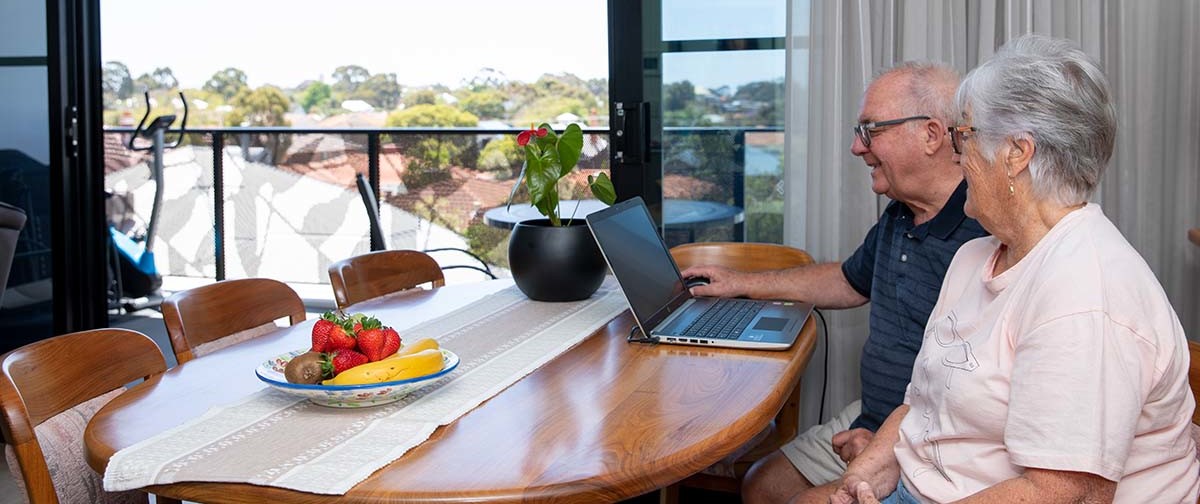While a large percentage of the population can and do choose to stay in their family home when they retire, a growing number of couples and singles are opting to downsize (or ‘rightsize’ as it is now often referred to) to newer and smaller houses or apartments, releasing the equity built in their family homes to fund comfortable retirements.
Below are five things to think about when considering if downsizing might be a smart option for you.
1. Home maintenance is becoming an issue
A big home to raise the kids and a backyard with room enough for friends and family, is the Great Australian Dream. But what happens after the kids leave home?
Older Australians often cite the constant burden – both physical and financial – of home maintenance as the deciding factor to downsize. If you find you are spending more time fixing, patching and painting than you are getting out and enjoying your retirement, it might be time to consider moving to a newer and more manageable space.
Real estate agents advise selling before an ongoing lack of maintenance may impact on the price you might get for the family home, or even how much might need to be spent to get the house fixed up, ready to sell.

2. Your home doesn’t suit your lifestyle anymore
Have a home with a pool, big backyard and two extra rooms and bathrooms that hardly get used anymore? If so, your house might have outgrown you and your needs.
Along with space you no longer need, the family home might actually pose some dangers for you as you grow older. Those stairs that you used to bound up and down 20 times a day, might now be a hazard as your footing gets less and less sure. Steep driveways and big gardens requiring a lot of care could also take a toll on your health.
3. You no longer need to live close to your job
One of the perks of retirement is stepping out of the 9-to-5 grind. This freedom from employment also frees you up to live somewhere that isn’t dependent on the daily commute to work.
Downsizing doesn’t just mean moving to a smaller space. Without a workplace to anchor you downsizing could be moving to a new house, the same size as the old family house, but in a suburb with lots of amenity and activities leaving you with more funds to create the perfect retirement lifestyle.

4. Household expenses aren’t leaving much money over for you
Experts say that around 30% of your budget should be allocated to housing expenses. This includes mortgage, bills, rates, insurance and maintenance. Anything over this percentage and your house is considered a, ‘financial burden’.
While you have a steady income, covering these expenses may be no sweat. But when budgeting within the aged pension, this becomes a different story. Downsizing to a newer space can see a reduction in these expenses. Downsizing to an apartment complex could see further reduction in maintenance costs too.
Spending over 30% of your budget on household expenses could also have an impact on the type of retirement you enjoy, leaving less for holidays, healthcare, leisure activities and discretionary spending.
5. Can you afford your retirement?
Even though Superannuation is compulsory for all Australians, many haven’t saved enough to fund a comfortable retirement.
Therefore, downsizing could release the equity in your large family home on a big block, generating a stream of income to help finance both a new space more appropriate for your new life stage and everyday bills. Parcel Property has helped many clients through this process by providing guidance and a range of options to make this transition as smooth as possible.
How to downsize your home for retirement?
If you are considering downsizing your home before or during your retirement there are a few key things that you should consider before making the move. The first step is determining what your motivations for downsizing are: is it about freeing up equity or cash for other things, a smaller space that is less maintenance giving your more time and money, or just a smaller home that better suits your changing needs. Once your goals are clear a few helpful things to consider are: choosing a location close to family and friends, ensuring that you choose a home with enough storage, be aware of the limitations that parking, lifts and strata living can offer, consider extra room for a study or guests and being mindful of multi-level homes having downstairs bedrooms in case stairs become a challenge in the future.
